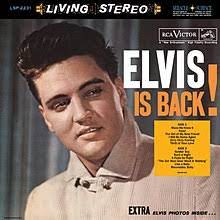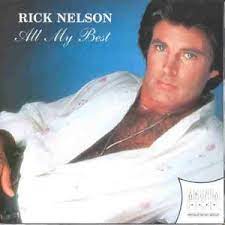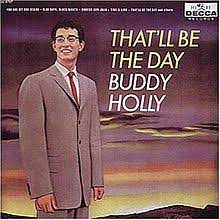- Home
- Chuck Berry Guitar Songs
Learn How to Play Chuck Berry’s Greatest Guitar Songs
Few artists have shaped the sound of rock ’n’ roll quite like Chuck Berry. With his signature guitar riffs, catchy storytelling lyrics, and undeniable rhythm, Berry’s music remains a cornerstone for anyone learning to play classic rock on acoustic guitar.
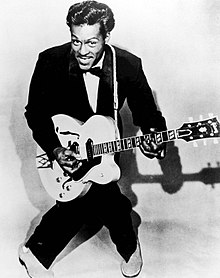
This collection of five lesson-ready Chuck Berry songs — including fan favorites like “Johnny B. Goode” and “Roll Over Beethoven” — captures his high-energy style in a way that’s approachable for acoustic players. Below, you’ll find links to chord and lyric sheets, demo videos, and rhythm tips for each song.
🎸 Overview Video - “Watch This Preview of My Best Chuck Berry Guitar Songs”
Chuck Berry Guitar Lesson Titles
Johnny B GoodeRoll Over Beethoven
Sweet Little 16
Promised Land
You Never Can Tell
1. Johnny B Goode - Learn To Play On Guitar
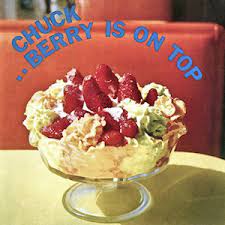
Johnny B Goode was written in 1955 but not recorded and released until 1958. Chuck Berry said later on the song was a reflection of his early days and changed the lyrics country boy from colored boy to ensure the song received radio play. The opening riff was lifted from a song from 1946 entitled "Ain't That Just Like A Woman".
The song has become one of the most recognized and influential rock and roll songs of all time.
"Johnny B. Goode" has been covered by many artists over the years and has been featured in numerous films, TV shows, and commercials.
Chords And Strumming
Standard tuning works here while playing the A, D and E7 chords using the down up down up and repeat rhythm pattern or play all down-strokes. Yes there is lead work in this number.
Guitar Lesson Details - (chords & lyrics sheet incl with lesson)
Back To Song List
2. Roll Over Beethoven - Learn To Play On Guitar
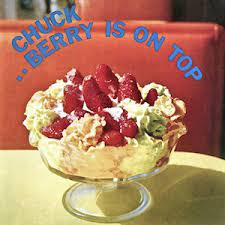
Roll Over Beethoven is a rock and roll song written by Chuck Berry, which was released in 1956. The song became a hit, reaching number 29 on the Billboard Hot 100 chart and helping to establish Berry as a major force in the emerging rock and roll genre.
The
song's lyrics describe a desire to leave classical music behind in
favor of rock and roll, with Berry urging the titular composer, Ludwig
van Beethoven, to "roll over" in his grave and make way for the new
music.
"Roll Over Beethoven" has since become a staple of rock and roll music, and has been covered by many artists over the years, including The Beatles and Electric Light Orchestra.
Chords And Strumming
The original key is a fret higher than pitch using the chords D, A and G. There is lead work in this one while playing either the down up down up rhythm pattern or playing steady down-strokes.
Guitar Lesson Details - (chords & lyrics sheet incl with lesson)
Back To Song List
3. Sweet Little 16 - Learn To Play On Guitar
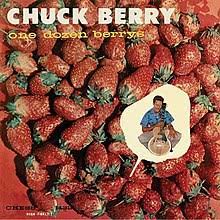
Sweet Little 16 was recorded and released in Jan of 1958 and managed a #2 on the Billboard chart. Berry surpassed this with a number one eventually, but not until 1972 with My -Ding-A-Ling.
The song became a massive hit, reaching number two on the Billboard Hot 100 chart and helping to solidify Berry's status as one of the biggest stars in rock and roll music.
"Sweet Little Sixteen" has been covered by numerous artists over the years, including The Beatles and The Beach Boys. The song has also been referenced in popular culture, appearing in films, television shows, and commercials.
Chords And Strumming
Three chords in this one which are A, D and G with Drop D Tuning and a down up down up down up rhythm pattern with some chops. No lead work in this one.
Guitar Lesson Details - (chords & lyrics sheet incl with lesson)
Back To Song Lists
4. The Promised Land - Learn To Play On Guitar
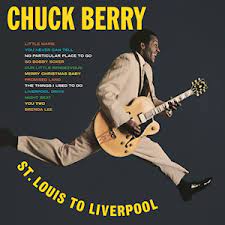
Promised Land a.k.a The Promised Land follows the melody of an old American folk song called The Wabash Cannonball. He had just gotten released from prison when this song was released in Dec 1964 and reached #41 on Billboard a month later. In fact, Berry used a prison atlas to chart the travels listed in the song.
The song tells the story of a man who is traveling from Norfolk, Virginia to the "promised land" of Los Angeles, California. The lyrics describe the man's journey, his encounters with various people and places along the way, and his excitement at finally reaching his destination.
Chords And Strumming
For rhythm play a down up down up and repeat, or use all down-strokes playing the chords C, F and G. Standard tuning with a bit of lead in this number.
Guitar Lesson Details - (chords & lyrics sheet incl with lesson)
Back To Song List
5. You Never Can Tell - Learn To Play On Guitar
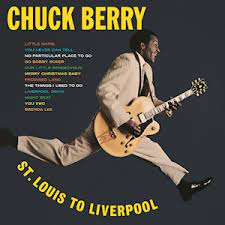
You Never Can Tell was released in 1964 on his album "St. Louis to Liverpool". The song is known for its upbeat rhythm, catchy melody, and clever lyrics, which tell the story of a young couple who get married and start a new life together.
"You Never Can Tell" was a hit for Berry, reaching number 14 on the Billboard Hot 100 chart. The song has since become one of his most beloved and enduring classics, and has been covered by many artists over the years, including Emmylou Harris, Bruce Springsteen, and Bob Seger.
Chords And Strumming
Drop D tuning is used in this song with just two chords, D and a G. The rhythm pattern hers is a steady down up down up and you'll pick a bit of lead in this one.
Guitar Lesson Details - (chords & lyrics sheet incl with lesson)
Back To Song List
These five Chuck Berry guitar lessons are a great introduction to the foundation of rock guitar. Whether you’re learning to strum along with “Sweet Little Sixteen” or trying out the infectious groove of “You Never Can Tell,” each song here showcases Berry’s genius in a way that’s fun and accessible.
Grab the chord sheets, watch the demos, and keep the spirit of rock ’n’ roll alive — one riff at a time. And don’t forget to check out more great 50s and 60s artist lessons linked below!
If you liked this Chuck Berry guitar songs page you might also like ... (click images)
Home Page
Top Hits Of The 50s
Tutorial Pricing: $3.25ea OR any 10 for $10
(use code "Any10410" at checkout)
Paid Requests for $25ea
(comes with any 8 freebies -> so 9 for $25)
